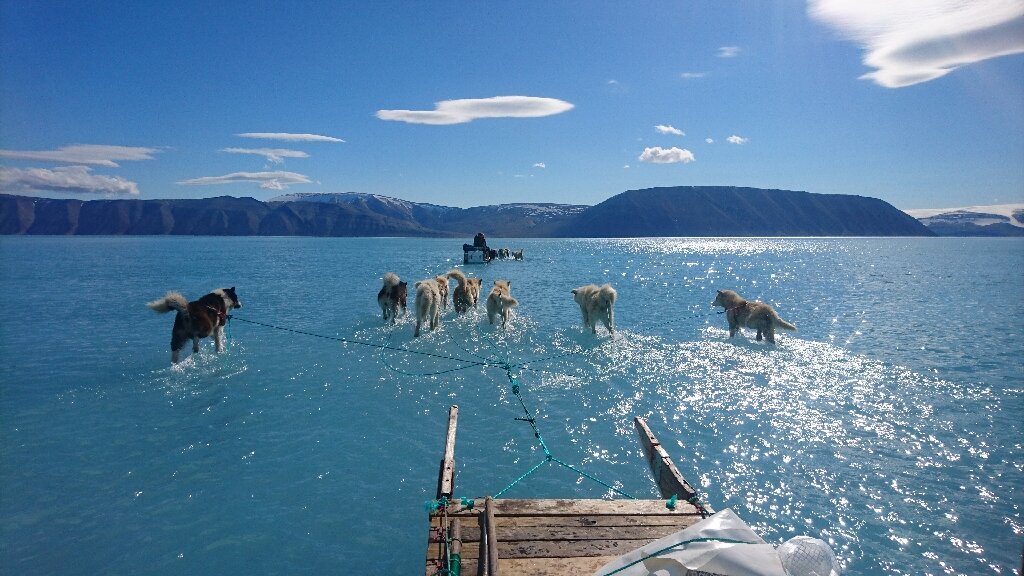Greenland's Summer Melts Have Started Early, and They're Very Bad This Year

Summer doesn't begin for two more days, but oceanographers and climatologists are already sounding the alarm about stunning, dangerous ice melts going on right now in Greenland, according to the Agence France-Presse (AFP).
The vast island nation locks away enough fresh water in its ice sheet to raise global sea levels by 20 feet (6 meters), according to the NSIDC. It's Earth's second-largest deposit of land-based ice after Antarctica. And research shows that in recent years its ice has melted faster than ever before. This month, as temperatures in northwestern Greenland approach all-time highs, researchers are encountering unusual, surprising levels of melting ice in the region, according to the AFP.
"There was a dry winter and then recently [there has been] warm air, clear skies and sun — all preconditions for an early melting," Ruth Mottram, a climatologist at the Danish Meteorological Institute (DMI), told the AFP. [How Do Greenhouse Gases Work?]
Mottram and colleagues found that Greenland lost 4.1 billion tons (3.7 billion metric tons) of ice on June 17 alone, and that 41 billion tons (37 billion metric tons) of ice have melted on the island since the start of the month.
The most significant concern here, according to the AFP, is how early this is all happening. Greenland experiences annual ice melt and growth cycles (though usually, unlike in recent years, they've more or less balanced each other out); but in 2019, the melting season began in early May. That's a month earlier than is typical and something that's happened only once before in the historical record, in 2016.
That means that not only is the ice melting very fast, it has more time to melt this summer than it would in a climate system that wasn’t so unbalanced. Since 1972, Greenland has contributed about half an inch (1.4 centimeters) to sea-level rise. But as humanity now pumps far more greenhouse gases into the air than at any time in the 20th century, that process is speeding up. Long melt seasons like this one seem to lead to much greater contributions to sea-level rise than in previous decades.
"It's possible that we could break the records set in 2012 for both lowest Arctic sea-ice extent ... and for record high Greenland ice-sheet melt," Mottram said, as reported by the AFP.
Sign up for the Live Science daily newsletter now
Get the world’s most fascinating discoveries delivered straight to your inbox.
In addition to the global consequences of the ice melt, locals in Greenland are encountering a terrain completely transformed from its usual state. A viral photo showed a group of sled dog teams that were forced to turn back after encountering a usually solid stretch of ice that had liquified on the surface.
Originally published on Live Science.










